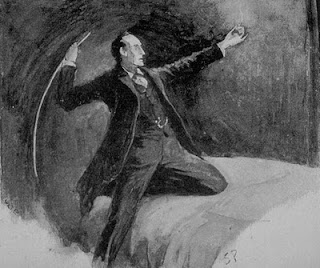The world is changing. Used to be that a few large corporations held unassailable monopolies on what you could read. They decided what got published, and what didn't. Since they were in the business of making money, they reasonably made decisions to maximize profits. Thus some amazing prose from some obscure genius would get tossed out of the slush pile while some porn star's ghost-written memoir would be fast-tracked. I'm not ragging on porn stars, just pointing out that in the traditional model, the corporation had a limited number of opportunities and it chose what maximized profits.
Is this what you want?
If you don't yet own a Kindle or a Nook get one. If you've already got a tablet computer or smartphone it'll cost you nothing to download the Kindle application.
No, go do it now. I'll wait.
OK, now that you've got a Kindle you're going to want to put something on it. And if you don't have a bunch of free ebooks from
Project Gutenberg, you're missing out on a huge value.
When you go out looking for free ebooks from Project Gutenberg, you may notice some other ebooks are for sale. Amazon sells lots of them and most of them are about $9.99 (or they were until Apple won the right of traditional publishers to charge more). If you keep looking, you'll see there are tons of books that are free. And others like my story,
The Aristotelian, that are $0.99.
There are a LOT of ebooks for $2.99 and under. A whole lot of them. It boggles the mind how many. How come? Because of
Kindle Direct Publishing a lot of writers are bypassing traditional publishers and selling directly through Amazon. All the jobs that traditional publishers did are being done by the authors themselves. Or not being done.
Traditional publishers have a name for this kind of thing, vanity press. And since it undermines their profits they've done their best to discourage it. Oh, Mr. Bookseller, you don't want to carry that title, it's self-published. Same for newspaper reviews. Like it has cooties.
And there's a grain of truth in that narrative. A traditional publisher pays for editing, an editor is supposed to go through the text and do proof-reading to flush out any typos. Self-published work can sometimes skip this step, and statistically, you're more likely to find typos. Moreover, an aspiring writer may be so in love with his story, s/he'll disbelieve any report that it's not wonderful. Writers are dreamers who tell lies for a living and before they'll tell you any lies, they tell themselves lies about themselves and the quality of their work. If any writer says otherwise, reread the last sentence. Hence, some self-published works are unworthy.
You can find lots of cheap ebooks, but you won't necessarily want to read all of them. Whereas $0.99 much money, there's time. An ebook must be worth the time it takes to read it. Plus the time it takes to decide to buy it, plus the time it takes to find it.
What to do? The Traditional Publishers have a solution they'd like to push on you. Simply pay them $9.99+ and they'll decide which titles are worthy and which are unworthy, and they'll decide what you will like, too. And they'll tell you to do things their way or you'll drown in an ocean of self-published dreck.
There is another way. I go to flea markets, yard sales, and thrift stores to save money. I also sort through bins of CDs at Dollar Stores. Looking for bargains is like hunting. You take what you find with no guarantee up front what you'll find. You have to enjoy the hunt to sort through nicknacks at an Estate Sale. If you watch American Pickers, Cash & Cari, or Antiques Roadshow on television, you'll understand. I realized just recently that schlepping through a long list of cheap ebooks is just like this.
But there's a difference. When you're at an Estate Sale, and your search turns up some unrecognized treasure, you snap it up for yourself. If there's two, you grab it, too. And you brag to your friends at what a great find you acquired. All they can do is envy you. Conversely, with ebooks there's no limit per customer. You can download it, and your friends can, too. Or your friends can report to you what treasures they've uncovered!
Everybody wins, except traditional publishers who'd rather charge you $9.99+ and tell you what to think.













